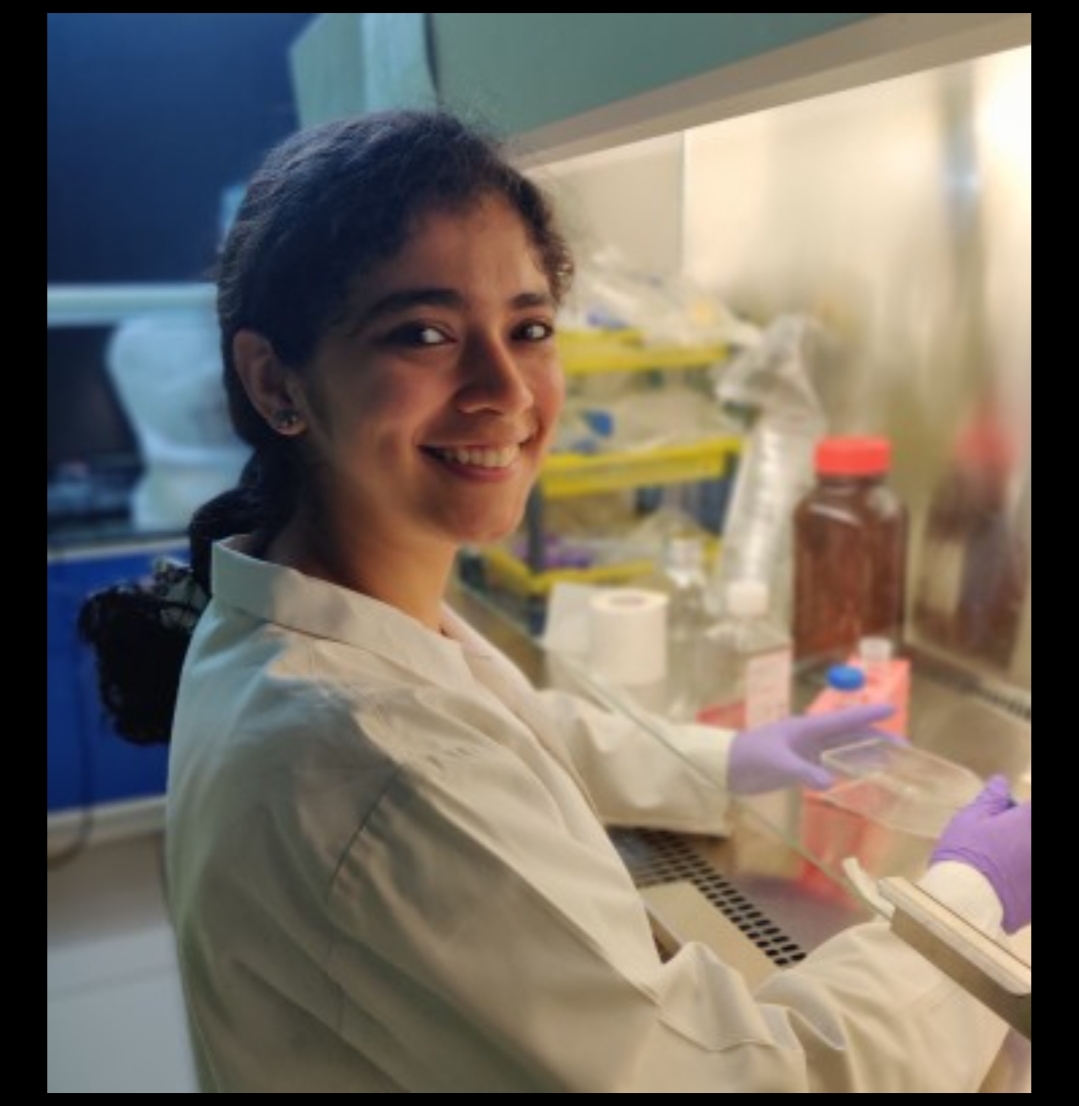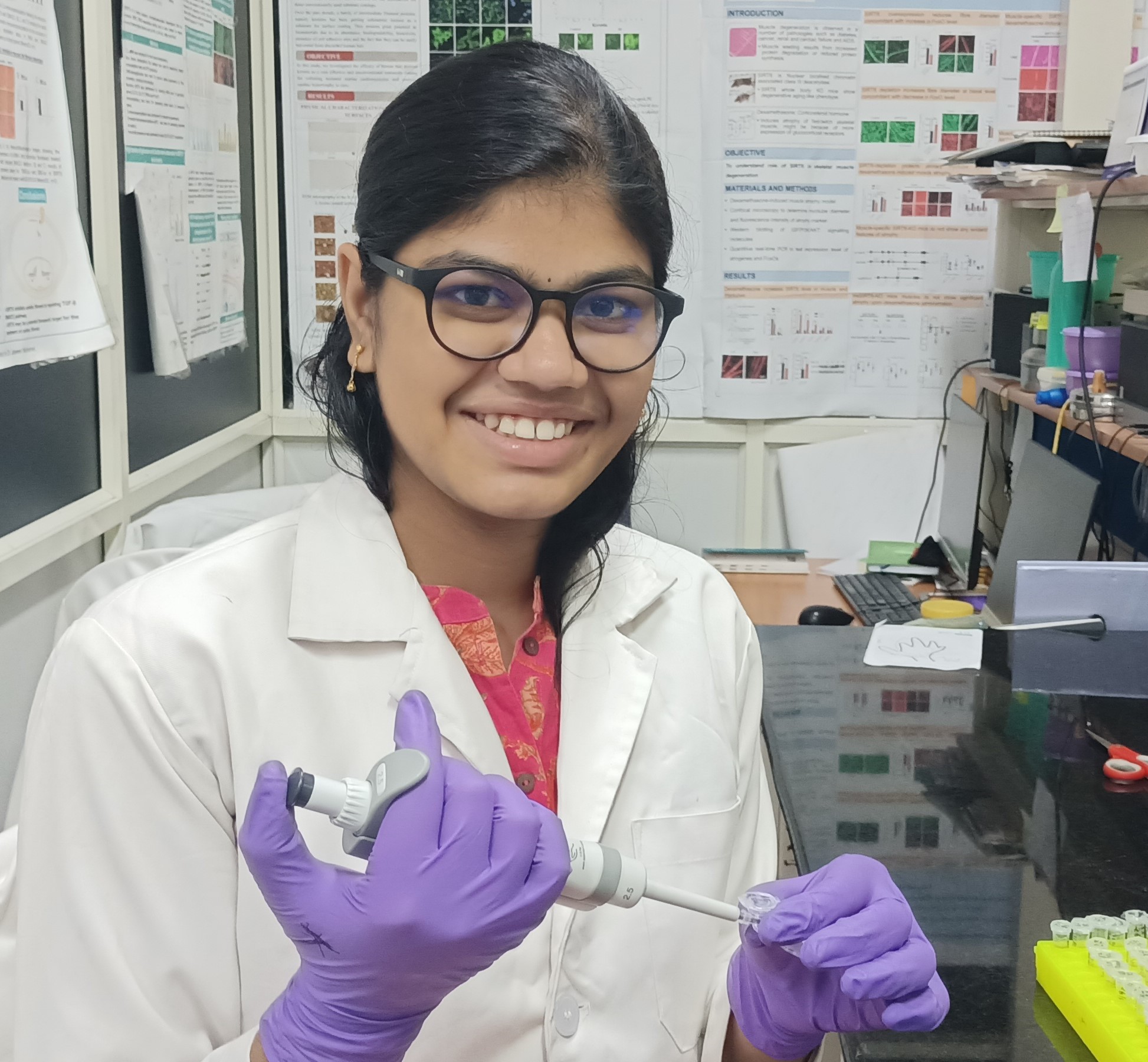_1715594795.jpg)
_1715594873.jpg)
_1715594923.jpg)
_1715594795.jpg)
_1715594873.jpg)
_1715594923.jpg)
Research in our lab focuses on post translational modifications by two families of NAD-dependent enzymes - Sirtuins and Poly (ADP-ribose) Polymerase (PARP). We try to find out how they regulate the pathophysiology of diseases in the heart and skeletal muscle. We use primary and secondary cell cultures as well as transgenic, dietary and surgical mouse models to test these enzymes for their ability to protect against metabolic disease. Our lab techniques range from physiology and biochemistry, to molecular biology and proteomics. We also take full advantage of the interdisciplinary network at IISc and other receptive collaborators. Ongoing work in our lab involves studies of the role of these enzymes in cardiac hypertrophy, fibrosis, mitochondrial dysfunction and muscle degeneration. Our goal is to uncover new biological functions of these enzymes that can be therapeutically targeted for promoting better health.

Email : aasthamunjal@iisc.ac.in
Designation : phd_student
Category : Molecular and Cellular Biology

Email : amarjeets@iisc.ac.in
Designation : phd_student
Category : Molecular and Cellular Biology

Email : apekshab@iisc.ac.in
Designation : phd_student
Category : Molecular and Cellular Biology

Email : arathib@iisc.ac.in
Designation : Postdoc
Category : Molecular and Cellular Biology

Email : arushitaneja@iisc.ac.in
Designation : Phd Student
Category : Molecular and Cellular Biology

Email : ashwinib@iisc.ac.in
Designation : phd_student
Category : Molecular and Cellular Biology

Email : bhoomikas@iisc.ac.in
Designation : phd_student
Category : Molecular and Cellular Biology
Email : dimplenagesh@iisc.ac.in
Designation : phd_student
Category : Molecular and Cellular Biology

Email : koushikidas@iisc.ac.in
Designation : Phd Student
Category : Molecular and Cellular Biology

Email : krishnegam@iisc.ac.in
Designation : phd_student
Category : Molecular and Cellular Biology

Email : mitigupta@iisc.ac.in
Designation : M.Sc Dissertation Student
Category : Molecular and Cellular Biology

Email : dhevir@iisc.ac.in
Designation : postdoc
Category : Molecular and Cellular Biology

Email : ridhi2022@iisc.ac.in
Designation : phd_student
Category : Molecular and Cellular Biology

Email : simaz@iisc.ac.in
Designation : phd_student
Category : Molecular and Cellular Biology

Email : sukanyaraghu@iisc.ac.in
Designation : phd_student
Category : Molecular and Cellular Biology

Email : nsunayana@iisc.ac.in
Designation : Postdoc
Category : Molecular and Cellular Biology

Email : swetham@iisc.ac.in
Designation : postdoc
Category : Molecular and Cellular Biology

Email : tsumi@iisc.ac.in
Designation : Phd Student
Category : Molecular and Cellular Biology
Desingu et al. describe the role of PARP1 in the pathogenesis of the Japanese encephalitis virus (JEV). PARP1 inhibits AKT signaling to activate the transcription factor FoxO and promotes autophagy to favor viral replication. Notably, PARP1 inhibition reduces clinical signs and improves the survival of JEV-infected mice.
Chronic activation of stress hormones such as glucocorticoids leads to skeletal muscle wasting in mammals. However, the molecular events that mediate glucocorticoid-induced muscle wasting are not well understood. Here, we show that SIRT6, a chromatin-associated deacetylase indirectly regulates glucocorticoid-induced muscle wasting by modulating IGF/PI3K/AKT signaling. Our results show that SIRT6 levels are increased during glucocorticoid-induced reduction of myotube size and during skeletal muscle atrophy in mice. Notably, overexpression of SIRT6 spontaneously decreases the size of primary myotubes in a cell-autonomous manner. On the other hand, SIRT6 depletion increases the diameter of myotubes and protects them against glucocorticoid-induced reduction in myotube size, which is associated with enhanced protein synthesis and repression of atrogenes. In line with this, we find that muscle-specific SIRT6 deficient mice are resistant to glucocorticoid-induced muscle wasting. Mechanistically, we find that SIRT6 deficiency hyperactivates IGF/PI3K/AKT signaling through c-Jun transcription factor-mediated increase in IGF2 expression. The increased activation, in turn, leads to nuclear exclusion and transcriptional repression of the FoxO transcription factor, a key activator of muscle atrophy. Further, we find that pharmacological inhibition of SIRT6 protects against glucocorticoid-induced muscle wasting in mice by regulating IGF/PI3K/AKT signaling implicating the role of SIRT6 in glucocorticoid-induced muscle atrophy.
Pathological lipid accumulation is often associated with enhanced uptake of free fatty acids via specific transporters in cardiomyocytes. Here, we identify SIRT6 as a critical transcriptional regulator of fatty acid transporters in cardiomyocytes. We find that SIRT6 deficiency enhances the expression of fatty acid transporters, leading to enhanced fatty acid uptake and lipid accumulation. Interestingly, the haploinsufficiency of SIRT6 is sufficient to induce the expression of fatty acid transporters and cause lipid accumulation in murine hearts. Mechanistically, SIRT6 depletion enhances the occupancy of the transcription factor PPARγ on the promoters of critical fatty acid transporters without modulating the acetylation of histone 3 at Lys 9 and Lys 56. Notably, the binding of SIRT6 to the DNA-binding domain of PPARγ is critical for regulating the expression of fatty acid transporters in cardiomyocytes. Our data suggest exploiting SIRT6 as a potential therapeutic target for protecting the heart from metabolic diseases.
Glycogen synthase kinase 3 (GSK3) is a critical regulator of diverse cellular functions involved in the maintenance of structure and function. Enzymatic activity of GSK3 is inhibited by N-terminal serine phosphorylation. However, alternate post-translational mechanism(s) responsible for GSK3 inactivation are not characterized. Here, we report that GSK3α and GSK3β are acetylated at Lys246 and Lys183, respectively. Molecular modeling and/or molecular dynamics simulations indicate that acetylation of GSK3 isoforms would hinder both the adenosine binding and prevent stable interactions of the negatively charged phosphates. We found that SIRT2 deacetylates GSK3β, and thus enhances its binding to ATP. Interestingly, the reduced activity of GSK3β is associated with lysine acetylation, but not with phosphorylation at Ser9 in hearts of SIRT2-deficient mice. Moreover, GSK3 is required for the anti-hypertrophic function of SIRT2 in cardiomyocytes. Overall, our study identified lysine acetylation as a novel post-translational modification regulating GSK3 activity.

padesingu@gmail.com

ankitkumartamta@gmail.com

rvenketsubbu@gmail.com

snehamishra@alum.iisc.ac.in

parthasarathyr@gmail.com

venkatramanr@iisc.ac.in

ektatripathi@gmail.com

ninitha@iitm.ac.in

shwetakumar@iisc.ac.in